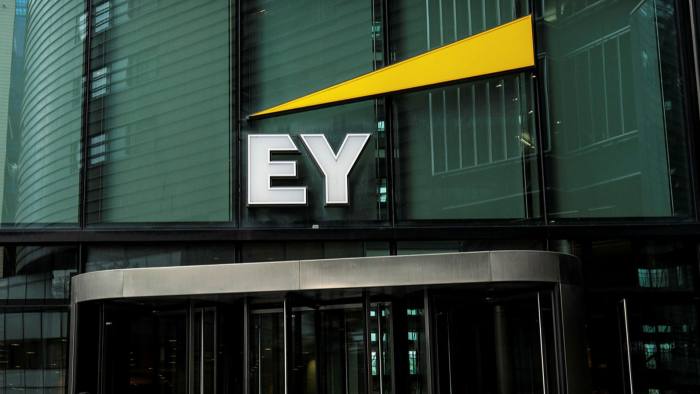The Big Four
Britain to shake up audit market after Carillion crash
Britain to shake up audit market after Carillion crash - Reuters
FILE PHOTO: A view of the London skyline shows the City of London financial district, seen from St Paul's Cathedral in London, Britain February 25, 2017. REUTERS/Neil Hall/File Photo/File PhotoReuters
UK Audit Shake-Up Targets Big Firms After Spate of Corporate Failures
LONDON (Reuters) - Britain set out sweeping reforms of big company audits on Tuesday after high-profile collapses at builder Carillion and retailer BHS in recent years hit thousands of jobs and raised questions about accounting quality. The business ministry detailed changes to auditing and corporate governance that will be put into law, though the measures are unlikely to come into force until 2024 or later and smaller firms will be shielded from the new rules. The reforms are in response to 150 recommendations from three government-sponsored reviews on improving auditing in a market dominated by KPMG, EY, PwC and Deloitte, known as the Big Four. The new law would create a more powerful regulator, the Audit, Reporting and Governance Authority (ARGA), to push through changes set out by government. In the meantime, the current watchdog, the Financial Reporting Council (FRC), will have powers to vet audit companies and ban failing auditors, the ministry said. Britain will also review a European Union definition of "micro entities", which benefit from simplified accounts. They typically have a balance sheet of no more than 350,000 euros ($377,230) and employ no more than 10 people. Loosening the definition would mean more firms saving money by filing simplified accounts, though it could raise investor protection concerns. Other reporting requirements will also be reviewed to help attract growth companies to Britain. The FRC currently focuses on big listed companies, but ARGA's remit would expand to include about 600 private firms with more than 750 staff and an annual turnover of over 750 million pounds ($949 million), a higher threshold than initially flagged. BHS was unlisted. NO UK SARBANES-OXLEY To curtail the dominance of the Big Four, the top 350 listed companies would have to appoint a non-Big Four accountant, or allocate a certain portion of their audit to a smaller accountant such as Mazars, BDO or Grant Thornton. The business ministry could introduce market share caps on the Big Four if there is no improvement in competition. Directors of premium listed companies would also have to state why they think their internal controls are effective. This would be done under Britain's "comply or explain" corporate governance code, which the FRC can change without legislation. UK companies pushed back against enshrining in law a version of mandatory U.S. Sarbanes-Oxley rules, which force U.S. directors to personally attest to the adequacy of internal controls, and face prison for breaches. "Lessons from Carillion and other recent company failures have been ignored, with little emphasis now on tightening internal controls and modernising corporate governance," said Michael Izza, chief executive of ICAEW, a professional accounting body. FRC chief Jon Thompson said: "The Government’s decision not to pursue the introduction of a version of the Sarbanes-Oxley reporting regime is, the FRC believes, a missed opportunity to improve internal controls in a proportionate, UK-specific manner." Big firms would also have to state what external checks, if any, were made on the reliability of their non-financial information in annual reports, such as risks from climate change.Larger companies would have to confirm the legality of their dividends, a lesson from Carillion.
Insight - The two sides of the EY break-up
For its part, EY is under particular pressure due to its auditing of collapsed German payments firm Wirecard AG – although it’s not clear that a break-up would rid it of any liabilities arising from that failure. Perhaps EY is preempting tougher regulation.Or perhaps it just sees an opportunity to monetise some of it assets.
A possible split of EY into separate audit and consulting firms must confront the problem faced by all break-ups: How do you create attractive businesses out of both when one is likely to be seen as inferior?
Here, that would be the newly established standalone auditor. EY – or any Big Four accounting firm that attempts such a separation – has its work cut out to make pure-play audit a success. The revelation by Michael West Media that EY is considering the move heralds a potentially seismic shift for the industry. A succession of accounting scandals has long prompted attacks on the Big Four for earning fees from audit clients by selling consulting services such as strategy or restructuring advice. There’s an inherent conflict of interest in offering these to the same executives whose homework you’re meant to be marking. While regulatory scrutiny is forcing firms to tread carefully, creating distinct companies is the most reliable remedy. The United Kingdom’s competition watchdog called for an “operational separation” of audit and consulting within the existing firms in 2019, stopping short of demanding full break-ups because of cost and complexity. For its part, EY is under particular pressure due to its auditing of collapsed German payments firm Wirecard AG – although it’s not clear that a break-up would rid it of any liabilities arising from that failure. Perhaps EY is preempting tougher regulation. Or perhaps it just sees an opportunity to monetise some of it assets. One option under consideration is the sale of a stake in the consulting business to a private buyer or to the stock market, creating a windfall for EY’s current partners, according to the Financial Times. Demand would likely be strong. Just look at the private-equity money piling in lately. PwC sold a tax advisory practice to Clayton, Dubilier & Rice for a reported US$2.2bil (RM9.6bil) last year, while KPMG offloaded its UK restructuring arm to HIG Capital LLC. But what about the rump that remains? While the underlying economics of the Big Four are opaque, there’s a widespread suspicion that consulting subsidises audit. At the very least, the ability to share costs means audit fees are lower than they would be for a distinct firm, regulators have found. Retaining talent The biggest challenge is how a standalone auditor would attract and retain talent without offering an in-house career in consulting as an option. Short-sellers and forensic investigators aside, checking company accounts is for many a laborious gateway to other roles. Audit partners accused of getting it wrong have regulatory probes hanging over them for years (an investigation into Rolls-Royce Holdings Plc’s 2010 accounts only just closed). No wonder juniors tend to jump ship to better paid and less risky careers in consulting or investment banking not long after they’re qualified. So auditing will have to be made more attractive, both financially and culturally. One place to start is expanding the function beyond checking financial statements to offering sophisticated checks on companies’ claims on non-financial performance such as climate and social impact. When the United States Securities and Exchange Commission is clamping down on greenwashing by investment funds, it’s clear the future of environmental, social and governance investing rests on companies proving they’re not cooking the books on these issues too. These public-interest assessments are going to be increasingly scrutinised by investors in future. They are already offered under the umbrella of so-called assurance services, but ought to become a more developed part of corporate reporting. That would involve transferring some skills over from the consultancy side. The trick will be to add in parts of the current consulting business that are relevant to a more modern vision of audit, without just recreating a new auditor-cum-consultancy. Of course, separation won’t eliminate all the conflicts in audit. The chief culprit is the way managers often effectively appoint the audit partners who are meant to be their policemen. But the prize for stock-market investors is improved audit quality, and a break-up could support that. The goal should be to create a virtuous circle. Make audit more enticing as a long-term career, attract people who do the work better – and hopefully cut the number of blow-ups. — Bloomberg Chris Hughes is a Bloomberg Opinion columnist covering deals. The views expressed here are the writer’s own.
Related news
UK Auditors - Chartered Accountant Audits UK










